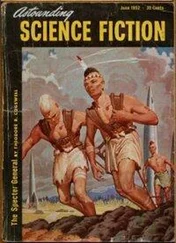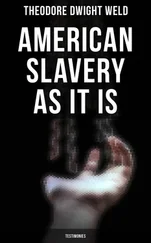The boy’s mouth dropped open. He had expected a lot of things, a thrashing, expulsion, but class chief? Drawing a long, deep breath, he scrambled to respond. Things couldn’t have turned out better. Of course he would be class chief, and of course he would make a good one, probably the best. Why, he already had a considerable following among both boys and girls, and to keep them all in line would not only be easy, but great fun. Hah, if someone dared not to listen to him, he’d show them! And suddenly he began to think of himself as rather important. There was no one who even came close to rivaling his qualities in strength and leadership. He thought, The headmaster sees I’m strong and I have the power to make everyone afraid of me. I already have the class under my thumb, so I’m the natural choice for class chief.
“Well, Ohrimko.” The headmaster looked at him from under his brows. “What will it be?”
“Yes, I can do it,” he shouted.
Kulik smiled slightly at the boy, pleased his plan was starting to take effect. “I knew you would agree to my proposition, young man. Keep in mind, being chief is no easy matter. You must set a good example to the rest of the class at all times. You must be the paramount influence. For example, you can’t get into any more fights, or beat up girls, or cause trouble for the teacher. It’s important for you to listen and show respect to Haya Sruleyevna. You are not to threaten her in any way. Don’t hang your head, young man, we all learn from our mistakes. And one last thing: you are behind in your lessons. You must work hard to catch up to the rest of the children. Why, little Tolik already knows the entire alphabet, and by heart. If you apply yourself you can overtake him easily. Chief of the class must surpass everyone in all respects.”
Ohrimko screwed up his mouth and gulped hard. The headmaster’s plan was beginning to take on a sour note — it was definitely more than he had bargained for. True, he looked forward to keeping his classmates in line, but the part about doing his homework didn’t appeal to him one bit. On even his better days, he didn’t enjoy listening to what was going on around him in class, and he had no desire to work through his arithmetic or spelling drills. Suddenly, being class chief didn’t look as appealing as it had a moment ago.
When the recess bell rang, the headmaster called all the second graders together and made his announcement: Ohrimko Suchok was to become class chief. Shocked and shaken, the boys and girls banded together to raise their objections. Desperately they pleaded with the headmaster to reconsider. They argued it was completely unfair to grant Ohrimko the upper hand; it would only give him license to terrorize them, without being held accountable by anyone but himself.
When this news reached Haya Fifkina, she couldn’t believe her ears. She was completely beside herself with anger. After having launched a formal complaint to the People’s Commissariat against Ohrimko Suchok and before even receiving a response from them, she was furious to learn that the headmaster had gone and appointed him class chief. Ohrimko was a belligerent child, her worst pupil, and if anything, deserved a good thrashing, certainly not a pat on the back. She was convinced this was all some kind of plot to drive her out of the school for good. She vowed to take this additional information to the authorities in Pinsk, in the hope that it would strengthen her case against Kulik.
The very next day, entering her classroom, prepared for disaster, Haya Fifkina was completely taken aback to see that the children were not shoving and lunging at one another or yelling in rough, teasing voices — they were lined up behind their desks, their hands folded before them, shouting in unison, “Good morning, Citizen Haya Fifkina!” Haya stared at them suspiciously, then walked over to Ohrimko and looked him straight in the eye. Obviously this impish little brat, who for some reason was pretending to be a model pupil, was responsible for this. He definitely had something up his sleeve. She turned to look at the blackboard. It had not only been scrubbed clean but even polished. On the ledge lay a neatly folded damp cloth and next to it a row of chalk. She didn’t know what to make of any of this.
“Well, well, children.” She put her hands on her hips. “What a delightful surprise. Thank you. Now please, take your seats.” Feeling immensely pleased, she reached for an exercise book on the far side of her desk, ready to begin the first lesson of the day. Looking up briefly to ensure that order still reigned, she found Ohrimko on the edge of his seat, eagerly waving his hand. He looked confused.
“Yes, Ohrimko?”
“Citizen Sruleyevna, I would like to ask you a question, um … er …”
“Come on, come out with it, boy. Don’t drag your tongue. What is it?”
“Well, about your lessons. Why can’t you teach us in Ukrainian? We don’t understand anything you say. If you taught us in our own language, then things would be easier for us all.”
“Oh, rebiatushky, rebiatushky ,” Haya waved her hand. “If only I knew how to speak Ukrainian, if only. But not to worry, soon you will come to understand Russian and speak it as though it’s your mother tongue. Then I guarantee everything will flow as smoothly as butter. Today we’ll start our lesson by reviewing the alphabet. Everyone together now: A, B …”
Following Haya’s voice, the children strove to do their best. Even Ohrimko mouthed letters he had never before pronounced. When Haya assigned a short spelling exercise, the children applied themselves diligently; some even came up with correct answers.
These improved conditions should have created a better environment in the school as a whole and formed a stronger relationship between teacher and headmaster, but events took a different turn. Haya became more mistrustful of Kulik, was hostile and aloof toward him, and managed to convince herself that with the NKVD on his trail, he was desperate, and had turned the children into exemplary pupils to protect himself. She had heard of these sorts of tricks, tricks used typically by counterrevolutionaries. But what worried her most was that if Kulik succeeded in painting himself in a better light, her life would again become a living hell. Things would go back to the way they were, if not worse. The children would start harassing her in the classroom and on the street again, fights would break out, Ohrimko would become defiant once more, and of course Kulik would go back to spreading anti-Semitism.
But as the days passed, the children’s performance actually improved. The biggest change came in Ohrimko. He was not only on his best behavior most of the time, but proved a more-than-capable student. He worked doggedly through his additions and subtractions, and was even able to write the letters of the alphabet all the way to the letter ‘t’. And to add to this, he didn’t neglect his chief duties; he took them very seriously. One day when Anastasia stuck out her tongue at him and scribbled something on the wall beside her desk, Ohrimko interrupted the class and escorted her to the headmaster’s office. And when Tolik and Fedko got into a brawl at recess, Ohrimko was there to break it up; he grabbed them both by the scruff of the neck and hurled them in opposite directions. Ohrimko was determined to do the best job he could. He was now at the top of his class.
Kulik was thrilled with the boy’s progress. He believed that the more a child misbehaved, the greater his cry for help and approval. Scolding, punishment or rejection served only to more firmly entrench this negative self-image. A child, especially a child like Ohrimko, riddled with defenses like aggression, anger and violence, must have his self-worth and self-esteem built up in a constructive way. By appointing him class chief and demonstrating he was worthy of this position, Kulik felt he had turned the boy around. It was no secret that he had a soft spot for him, something Ohrimko was well aware of and took pride in.
Читать дальше












